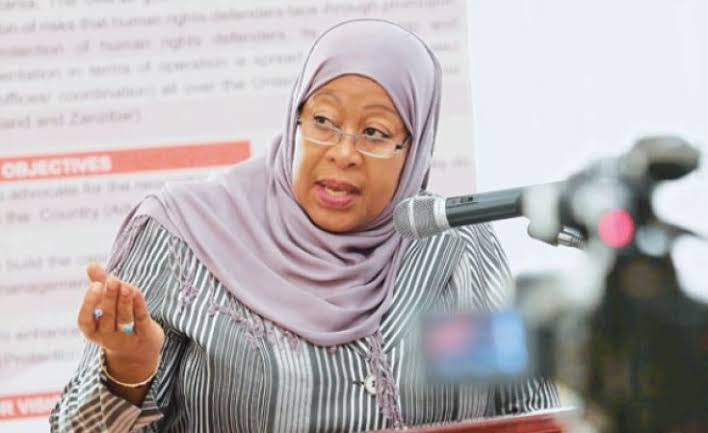Tanzania President Samia Suluhu Hassan has cancelled 61st Independence Day celebrations that is meant to take place on December 9 2022.
#WhisperEyeNews

(Courtesy Photo)
Samia alleged that the Tsh960 million (about Shs1.7 billion) budget allocated for the celebration can be used to build dormitories for children with special needs.
The funds will be channeled to the schools through the President’s Office – Regional Administration and Local Government (PO-RALG).
This is not the first time a Tanzanian head of state cancels Independence Day celebrations.
Likewise the former Tanzanian President John Magufuli cancelled celebrations to mark the country’s Independence Day on December 9 when he was still alive and directed that funds earmarked for the event should be used to buy medical facilities, a statement by the Prime Minister’s Office.
The statement said President Magufuli directed that 835,498,700 Tanzanian shillings (about 360,000 U.S. dollars) that were budgeted for the celebrations should be used to buy medical facilities for the newly built Uhuru hospital in the capital Dodoma.
The statement said Prime Minister Kassim Majaliwa announced President Magufuli’s decision during an event to mark the 60th anniversary of the Association of Tanzania Employers held in the commercial capital Dar es Salaam.
On Nov. 20, 2018, Magufuli cancelled celebrations to mark the Independence Day saying 995,182,000 Tanzanian shillings earmarked for the event should have been used for the building of the Uhuru hospital.
Majaliwa said over 4.2 billion Tanzanian shillings have been used for the construction of the hospital.
Tanzania’s independence movement started in 1954 and was led by Julius Nyerere, who co-founded the Tanganyika African National Union (TANU). He was educated in Uganda and Scotland and began voicing his anti-colonial, Africanist political agenda when he returned to his country. He was inspired by the non-violent independence movement waged by Mahatma Gandhi in India and advocated for a similar resistance in Tanganyika. He was instrumental in uniting several tribal factions over the region to launch a united front against the British.
Elected to the General Council in the national elections of 1958–59, Nyerere, known as teacher or ‘Mwalimu’ in Swahili because of his teaching career, became the first President of an independent Tanganyika in 1961. It became a Republic the next year and merged with Zanzibar in 1964 after they overthrew the Sultan of Zanzibar. This is when the name of the country changed to Tanzania.

